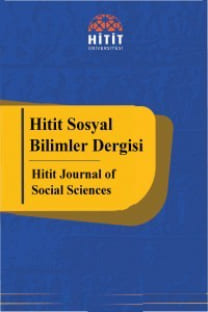POSTKOLONYALİZM VE BATI SİNEMASINDA DOĞU-BATI AYRIMINA YÖNELİK POSTKOLONYAL ÖĞELER
Birinci ve İkinci Dünya Savaşları sonrasındaki dönemler pek çok bağımsız ve egemen devletin uluslararası alana dâhil olma serüvenini başlatmış ve günümüze kadar bu süreç devam etmiştir. Batı’nın etkisinden kurtularak bağımsızlığını ilan eden devletlerden pek çoğunun, bugün askerî olmasa da geniş çapta bir sömürü altında olduğu ileri sürülmektedir. Dünyanın büyük bir bölümüne uzun yıllar boyunca sahip olan Batı, günümüzde de etkisini ve nüfuzunu koruyabilmek için çeşitli araçlara başvurmaktadır. Postkolonyalizm’in bu ve benzer savları bugünün uluslararası ilişkilerinin doğasına farklı bir bakış açısı sunmaktadır. Bu kurama göre Batı, yüzyıllarca “Doğu” ya da “öteki” gibi kavramlarla tanımladığı kendisinin dışında kalan dünyayı sömürgeleştirmiştir ve bu sömürü düzeni askerî anlamda olmasa da devam etmektedir. Siyaset, ekonomi, kültür, toplum, teknoloji gibi alanlarda gözlemlenebilen bu sömürüyü sanat alanında da görmek mümkündür. Bu çalışmada öncelikle postkolonyalizm kuramının temel savları ve uluslararası ilişkilerin doğasına getirdiği açıklamalar ele alınacaktır. Daha sonra da 2000’li yıllarda Batı sinemasından çıkan bazı filmlerdeki postkolonyal öğeler anlatılmaya çalışılacaktır.
Anahtar Kelimeler:
-
-
Post-World War I and World War II periods launched a process in which lots of independent and sovereign states participated in international areas, and that process has continued thus far. Gaining their independence by getting over influences of the West, a lot of those states are alleged to be under a widespread exploitation today though not militarily. Having possessed a large part of the world for many years, the West is now applying different tools to continue its influence and prestige. Those and other assumptions of post-colonialism present a different perspective to nature of today’s international relations. According to theory, the West colonized for ages what is defined as “the other” or “the East”, and the system of exploitation is carrying on even if not in military terms. Possible to observe in political, economical, cultural, social and technological fields, exploitation can be seen in art, as well. In this work, firstly post-colonialism’s assertions and explanations for the state of international relations will be dealt. Then postcolonial themes in a few movies from the 2000s in the Western film industry will try to be analyzed
Keywords:
Post-colonialism, Western Cinema, Neo colonialism, the West the East,
___
- ASHCROFT, Bill; GRIFFITHS, Gareth ve TIFFIN, Helen. (2007), Post-Colonial Studies:
- The Key Concepts, Routledge, New York, 2. Basım.
- BUSH, Barbara. (2006), Imperialism And Postcolonialism, Pearson, Harlow.
- GROVOQUI, Siba N. (2007) “Postcolonialism”, Tim Dunne, Milja Kurki ve Steve Smith
- (Ed.), International Relations Theories: Discipline and Diversity, Oxford University
- Press, New York, ss. 229-246.
- KAUL, Suvir. (2009), “How to Write Postcolonial Histories of Empire”, Daniel Corey
- and Lynn Festa (Ed.), Postcolonial Enlightenment, Oxford University Press, New
- York,ss. 305-327.
- MOORE, David Chiani. (2006), “Is the Post- in Pstcolonial the Past- in Post-Soviet?:
- Toward a Global Postcolonial Critique”, Violeta Kelertas(Ed.), Baltic Postcolonialism,
- Radopi, New York, ss.11-31.
- NİNG, Wang. (1997), “Orientalism versus Occidentalism”, New Literary History, Cilt 28,
- Sayı 1, ss. 57-76.
- ROSTOW, Walt Whiteman. (1960), The Stages of Economic Growth: A Non-Communist
- Manifesto, , Cambridge University Press, Cambridge, 2. Baskı.
- OKUR, Mehmet Akif. (2012), Emperyalizm, Hegemonya, İmparatorluk: Tarihsel Dünya
- Düzenleri ve Irak’ın İşgali, Ötüken, İstanbul, 2. Basım.
- ORR, Leonard. (2008), Joyce, Imperialism&Postcolonialism, Syracuse University Press,
- New York.
- SAİD, Edward W. (1979), Orientalism, , Vintage Books, New York.
- SAİD, Edward W. (1994), Culture and Imperalism, Vintage Books, New York.
- SHARP, J. ve BRİGGS, J. (2006), “Postcolonialism and Development: New Dialogues?”,
- The Geographical Journal, Cilt. 172, Sayı. 1, ss. 6-9.
- SMITH, Steve ve OWENS, Patricia. (2006), “Alternative Approaches to International Theory”,
- John Baylis ve Steve Smith (Ed.), The Globalization of World Politics, , Oxford
- University Press, New York, 3. Baskı, ss. 271-296.
- XİE, Shaoboo. (1997), “Rethinking the Problem of Postcolonialism”, New Literary History,
- Cilt. 28, Sayı. 1, s.s. 7-19.
- YOUNG, Iris Marion ve LEVY, Jacob T. (2011), “Introduction”, Jacob T. Levy ve Iris Marion
- Young, Colonialism And Its Legacies, Lexington Books, Plymouth.
- YOUNG, Robert J. C. (2004), White Mythologies: Write History and the West, Routledge,
- Londra, 2. Baskı.
- Yayın Aralığı: Yılda 2 Sayı
- Başlangıç: 2008
- Yayıncı: Hitit Üniversitesi
Sayıdaki Diğer Makaleler
POSTKOLONYALİZM VE BATI SİNEMASINDA DOĞU-BATI AYRIMINA YÖNELİK POSTKOLONYAL ÖĞELER
MADENCİLİK PROJELERİNİN ÇEVRESEL DIŞSALLIKLAR GÖZ ÖNÜNDE BULUNDURULARAK EKONOMİK DEĞERLENDİRMESİ
TEPECİK-ÇİFTLİK NEOLİTİK İNSANLARINDA GENEL VE CİNSİYET YÖNELİMLİ ÇOCUK SAĞLIĞI
İmam-ı Rabbânî’nin Mektûbât’ında İçedönük Eleştiriler
DUYGUSAL ZEKA VE ÖRGÜTSEL VATANDAŞLIK DAVRANIŞI İLİŞKİSİ
